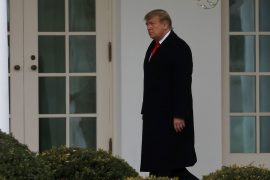Europe and America’s argument – China missed the opportunity


Xi Jinping called for “dialogue and inclusion” in a video message that was broadcast late Tuesday, European time
Source: DPA/Mary Altafer
The broken submarine deal and chaotic withdrawal from Afghanistan has left a fatal effect: the United States lacks credibility. Beijing’s ruler Xi Jinping cleverly took advantage of this – with a memorable speech.
ICrisis between Europe and the United States, the winner is the superpower whose growing influence the West seeks to curb: China. President Xi Jinping used his presence at the 76th United Nations General Assembly in New York to project the world community as a more credible partner than his adversary, US President Joe Biden.
Xi Jinping called for “dialogue and inclusion” in a video message that was broadcast late Tuesday, European time. China’s ruler said “differences and problems between countries”, which can hardly be avoided, should be treated “on the basis of mutual respect”. He chose a gentle mountain landscape as the background of the video.
The head of the Communist Party has repeatedly stressed that China will abide by all agreements made by the international community. Whether in environmental protection, development aid, in the fight against epidemics – yes, even in compliance with democracy and human rights.
Jinping stresses China’s commitment to “weak countries”
In stark contrast to these statements is the transatlantic dispute over the new security alliance with Australia and Great Britain in the Indo-Pacific, which was announced by the US President astonishingly last week. Biden deliberately kept the project a secret from the European Union and Germany and also allowed France’s billion-dollar deal for submarine deliveries to fail. Many see this as an unfair game and even a broken word.
To Beijing’s delight, the top meeting in New York that ran until Monday has so far not helped settle the dispute. opposite of this. In his speech, which Biden delivered earlier that day, the US president pledged to the world a new reconciliation to end wars in a new “era of diplomacy”.
At the same time he mentioned Brussels, Paris and Berlin again on the international stage not as partners in the Indo-Pacific, but as Australia, Japan and India. Meanwhile, the European Union has suspended important trade talks with the US in protest. Commission chair Ursula von der Leyen called the US approach “unacceptable”, with Federal Foreign Minister Heiko Maas (SPD) calling it “troubling” and “serious”.
Despite all the humiliation, it is almost forgotten that the West’s involvement in the Indo-Pacific is about countering China’s increasingly escalating behaviour. That’s why the regime that Xi Jinping stands for is like no other in his country. But he showed nothing and called for “real multilateralism”. It was also a dig at US President Biden, who called for international cooperation but felt that decisions should be based on his interests first.
Jinping’s words are unlikely to affect countries that already have a clear view of human rights violations and the growing global claim to the power of his regime. In his appearance, he deftly uses the fatal impression that West had recently left. That you can’t necessarily trust his promises, that he will let people down. Like the chaotic retreat in Afghanistan. The submarine dispute does not at all convey the impression of loyalty to the Coalition.
Countries looking for partners to develop investment and aid may well fulfill China’s promises. China has been investing especially in poor countries for years. However, the concept of “New Silk Road” serves the sole purpose of achieving geo-strategic impact. Higher goals such as investment in population, in democracy or equal opportunities are also not part of the concept.
It looked very different in front of the United Nations. Jinping stressed China’s commitment to “vulnerable countries”, spoke of “fair development cooperation” and “relationship at an equal level”. That’s how good it feels. In any case, abandoned is better than a billion dollar deal for local crews or submarines.
In the “Kick-Off Politics” podcast, we’ll give you the most important background on a top political topic of the day in conversation with WELT experts from Monday to Friday. In just 10 minutes from 6 am.

Introvert. Proud beer specialist. Coffee geek. Typical thinker. Pop culture trailblazer. Music practitioner. Explorer.









